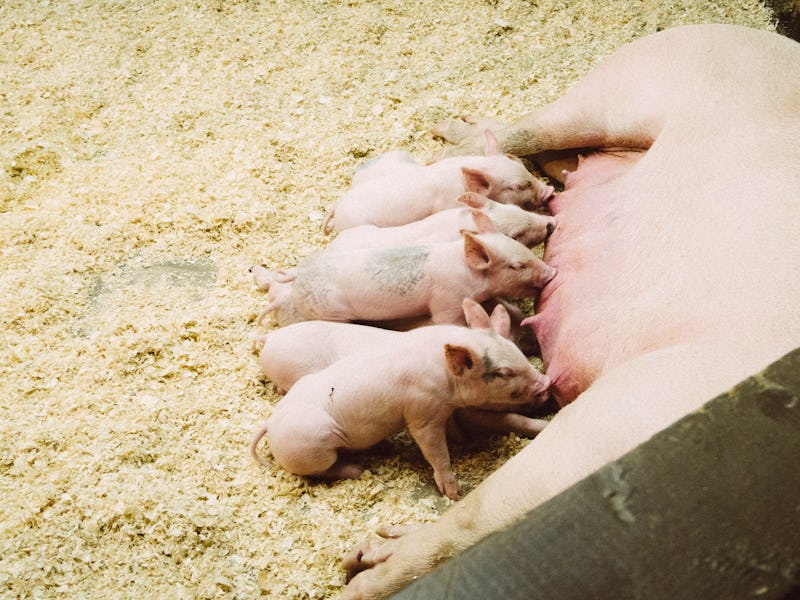Breeders Want to Build Animals That Are Immune to Disease, New Report Claims
Livestock could soon receive a genetic upgrade

Scientists could soon overcome diseases found in livestock and other animals through genetic engineering. While editing genes is still controversial, the scientists behind the research are optimistic about changing people’s minds.
“The feeling is, cautiously, it seems as though public opinion is slowly coming around to the idea,” Professor Eleanor Riley, director of the Roslin Institute in Edinburgh, told the Guardian. The United Kingdom was the first to allow gene-editing in human embryos, but the process is still met with public resistance. Due to the global pressure placed on farmers to support an outpaced food system, some are beginning to reconsider their stance on gene-editing, at least in the case of animals.
The Roslin Institute announced that it created pigs that appear to be completely immune to Porcine Reproductive and Respiratory Syndrome Virus (PRRSV), or “blue ear disease.” The institute is also conducting a separate trial to test pigs that were genetically engineered to be resistant to African swine fever, a highly infectious disease has devastated farms.
In order to breed pigs that are immune to PRRSV, Riley’s team of scientists first identified the gene that encodes the receptor on the surface of cells to which the virus attaches itself. The virus is able to gain entry to the cell by binding to the surface.
Riley’s team removed a tiny section of this gene, which then made it impossible for the virus to attach to the cell. Initial trials suggest that the resulting pigs are now entirely resistant to PRRSV.
“Globally this is the most significant pig disease,” Riley said, which could make the technology a hit with farmers. The institute is already working with the livestock breeding firm Genus PIC, aka the “Pig Improvement Company,” whose sought-after pig genes already account for 30% of the world’s pigs.
Riley believes the PRRSV-resistant pigs could be approved on farms within three to five years. In the meantime, Roslin Institute claims to have identified a target gene that could confer resistance to avian flu, the infamous chicken-killer.